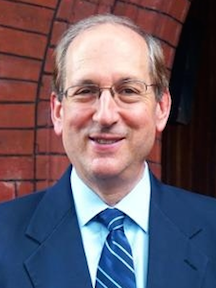The past academic year has deeply challenged all the members of our university communities and society at large. Pictures of campus protest and unrest will long stay in our minds. It is precisely at times like these that we must look to first principles that underlie the mission of American higher education and that Phi Beta Kappa has actively shaped. I would like to share three, and then a story of a campus that benefited from their wise application.
First, describing the challenge of this moment as one of balancing the values of free expression and safety miscalculates the relationship between these goals. It is essential that students be able to learn without fear. While campus safety is an instrumental goal, free expression is a fundamental goal. Campuses do not exist merely to be safe. They are safe to further their mission of creating, discovering, and transmitting knowledge through teaching and scholarship. This explains why members of the academic community are entitled to be physically safe, but not to be “intellectually safe.” The intellectual challenges of campus life may come from many sources, including protest. This is why we begin by presuming expression, including protest, to be protected forms of free expression and inquiry.
Second, no right is limitless. No one is permitted to threaten another. A university is both entitled to and required to respond to efforts to coerce others or to threaten violence. Similarly, no one may unduly disrupt the operations of the university. For example, protests outside a campus building are protected expression, but blocking an entrance to campus buildings would not be.
Third and perhaps most significantly, the campuses that have best navigated the challenges of this past year approached these issues as a community, drawing on months if not years of conversation and engagement. As described in the Society’s Statement on Campus Protests, “Schools do best when they seek dialogue across ideological and political differences between and among the members of the campus community and share a commitment to transparent decision-making.”
I have had opportunities to participate in the application of these principles on campus firsthand, including my recent experience at Skidmore College at the invitation of their President, Marc Conner (ΦBK, University of Washington). My multi-day “free expression residency” was part of an ongoing campus-wide engagement on issues of expression, community, and dialogue. During this time I met with a group of Jewish and Muslim student leaders to discuss their views of the Israel-Palestine conflict and how it has affected their lives. I shared personal stories of a former faculty colleague who suffered a tragic loss on October 7 and a former student, born in Gaza, whose family confronts the humanitarian crisis there. The ensuing discussion was not easy, but I believe that the students both spoke and listened to each other. President Conner recently told me of meetings that continue in a spirit of “cooperation not antagonism,” even where there is disagreement about key fundamentals.
The third star on the Phi Beta Kappa key, in addition to the two for learning and morality, is for friendship. This kind of friendship is not only for those with whom we agree. It is also for those with whom we disagree about key fundamentals but with whom we share a community.
Frederick M. Lawrence
Secretary and CEO
Secretary Lawrence has recently discussed the topic of campus protests on PBS NewsHour, CNN, CBC, and the American Council on Education’s dotEdu podcast. In addition to his role at the Society, Secretary Lawrence is a distinguished lecturer at the Georgetown Law Center, where he teaches courses such as “Free Speech on Campus” and “Higher Education and the Law.” He is the author of numerous articles on the topics of free expression, free inquiry, and academic freedom, and is a co-author of the forthcoming new edition of Higher Education and the Law, the leading casebook in the field.




